Overview
New York City
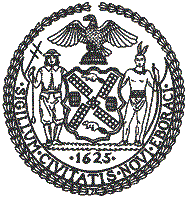
Year Founded 1624
Area 309 square miles
Population 8,085,700 (2003 estimate)
The New York City mayoral race, which wound up becoming the most expensive non-Presidential race in U.S. history, pitted incumbent Mayor Michael Bloomberg (R) against Fernando Ferrer (D), a former Bronx Borough President (1987-2002). Bloomberg was first elected in November 2001 after a costly race to succeed the two-term mayor Rudolph Giuliani. Bloomberg ran against New York City Public Advocate Mark Green (Bloomberg ended up beating Green 50-47%) and was alleged to have spent $70 million of his fortune (Bloomberg was a partner at Salomon Brothers until 1981 and started his own securities data and media conglomerate in 1982) in the race. 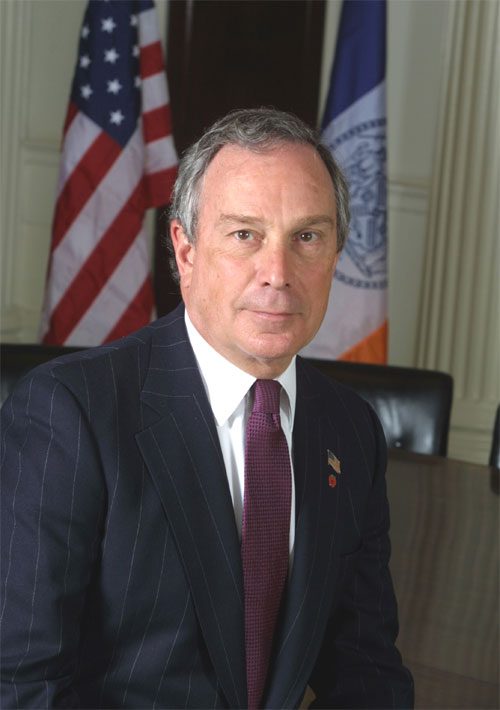 Bloomberg, whose first year in office was marked by low popularity ratings and derisive nicknames like "Gloomberg," saw his popularity plunge as low as 31% in late 2002 after he got into protracted battles with the city's unions, pushed harsh quality-of-life legislation, and cut city spending. Eventually, however, Bloomberg was able to point to falling crime and unemployment and rising public school performance, as well as a difference in governing style from Giuliani, with more emphasis on meritocracy than ideology, and his poll numbers rose. In a city in which 68% of the voters are registered Democrats, Bloomberg also carefully aligned himself with Democratic issues and endorsers in his re-election bid, running again as a Republican but belying that party affiliation by, among other things, distancing himself from President Bush following Bush's re-election in 2004, supporting same-sex marriage and abortion rights, and cultivating endorsements from Democratic Party bigshots. Bloomberg, whose first year in office was marked by low popularity ratings and derisive nicknames like "Gloomberg," saw his popularity plunge as low as 31% in late 2002 after he got into protracted battles with the city's unions, pushed harsh quality-of-life legislation, and cut city spending. Eventually, however, Bloomberg was able to point to falling crime and unemployment and rising public school performance, as well as a difference in governing style from Giuliani, with more emphasis on meritocracy than ideology, and his poll numbers rose. In a city in which 68% of the voters are registered Democrats, Bloomberg also carefully aligned himself with Democratic issues and endorsers in his re-election bid, running again as a Republican but belying that party affiliation by, among other things, distancing himself from President Bush following Bush's re-election in 2004, supporting same-sex marriage and abortion rights, and cultivating endorsements from Democratic Party bigshots.
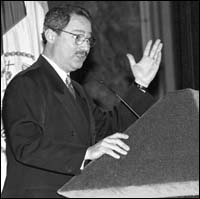 Ferrer (who also ran briefly against Giuliani in 1997 but dropped out before the primary), although the most prominent Hispanic politician in New York City, never seemed to get close to Bloomberg in the polls. The Democratic establishment and several prominent Democratic politicians endorsed him, but the party never mounted much of an attack against Bloomberg. Ferrer also made a number of highly-publicized gaffes during his campaign, including a much-criticized March 2005 speech to a police union in which he said that the February 1999 shooting of Amadou Diallo by four New York police officers was not a crime. Bloomberg ran a low-key but high-spending campaign (he spent another $70 million in the 2005 cycle) focusing on issues of competence and on his own record, touting the recovery of the city's economy following the World Trade Center attacks in September 2001 and on significant drops in the crime and unemployment rates. Ferrer (who also ran briefly against Giuliani in 1997 but dropped out before the primary), although the most prominent Hispanic politician in New York City, never seemed to get close to Bloomberg in the polls. The Democratic establishment and several prominent Democratic politicians endorsed him, but the party never mounted much of an attack against Bloomberg. Ferrer also made a number of highly-publicized gaffes during his campaign, including a much-criticized March 2005 speech to a police union in which he said that the February 1999 shooting of Amadou Diallo by four New York police officers was not a crime. Bloomberg ran a low-key but high-spending campaign (he spent another $70 million in the 2005 cycle) focusing on issues of competence and on his own record, touting the recovery of the city's economy following the World Trade Center attacks in September 2001 and on significant drops in the crime and unemployment rates.
Bloomberg was able to capture 46% of the city's African-American vote and as much as 30% of the Latino vote. Bloomberg also came away with 72% of the city's Jewish voters and 48% of the city's Democratic voters. Bloomberg's re-election marked the fourth straight election of a Republican to the office of the mayoralty of the nation's largest city. Ferrer did, however, outpoll Bloomberg by 37,000 votes in his native borough, the Bronx.
Detroit
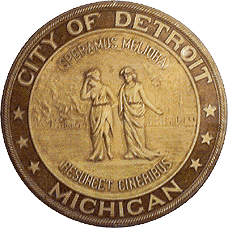
Year Founded 1701
Area 139 square miles
Population 899,400 (February 2005 estimate)
In what many political observers considered a stunning comeback, Kwame Kilpatrick, the incumbent mayor of Detroit, soundly defeated his challenger, Freman Hendrix. Polls taken up until the last 24 hours before the election showed Kilpatrick trailing Hendrix by substantial margins. If Kilpatrick had lost, he would have been the first sitting mayor to lose an election in Detroit since Louis Miriani was defeated by Jerome Cavanaugh in 1961.
Issues during the campaign seemed to turn much more on matters of character and competence than on substantive issues facing the city (including a budget deficit as high as $300 million, an outflow of jobs and investment capital from the city, the looming threat of state receivership, and a much-publicized report from the US Census Bureau in June 2005 that showed that Detroit had fallen off the list of the ten most populous cities in the nation for the first time since 1900). Kilpatrick, the son of Carolyn Cheeks Kilpatrick, a Congresswoman for Michigan's 13th Congressional District (which includes most of Detroit and some outlying suburbs, including Grosse Point, River Rouge, Wyandotte, Ecorse, and Lincoln Park) since 1996, first assumed office in 2002, after campaigning against former city council member Gil Hill. 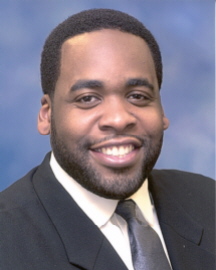 His previous jobs included teaching in the Detroit public school system, serving in the Michigan House from 1996 to 2001, and serving as the House's Democratic minority leader in 2001. Kilpatrick lost to Hendrix in the August primary by a 44-34% margin, which was a major loss but gave the mayor enough breathing room to stay in the race through November. His previous jobs included teaching in the Detroit public school system, serving in the Michigan House from 1996 to 2001, and serving as the House's Democratic minority leader in 2001. Kilpatrick lost to Hendrix in the August primary by a 44-34% margin, which was a major loss but gave the mayor enough breathing room to stay in the race through November.
From the beginning, Kilpatrick's biggest liability may have been his image as the so-called "hip-hop mayor," an image which many in the media used as a target of ridicule but which ironically may have been one of his strongest assets in his GOTV effort among younger urban voters. Time Magazine labeled Kilpatrick one of the nation's three worst big city mayors (along with San Diego Mayor Dick Murphy, who stepped down in a cloud of scandal in July 2005, and Philadelphia's John Street) in April 2005. (The mainstream media largely ignored Kilpatrick's being included in Ebony Magazine's May 2005 list of the 100 most influential black Americans.) The Time blurb about the mayor cited Kilpatrick's approval of a two-year city lease of a $25,000 Lincoln Navigator to his wife, a controversy that was doggedly pursued by the Detroit Free Press and local news station WXYZ, as well as Kilpatrick's use of a 21-person security detail during the worst budget crisis in the city's history. The Navigator controversy and the security-detail controversy converged for the mayor in January 2005 when Steve Wilson, a WXYZ reporter who had been aggressively pursuing the mayor for months, was shoved against a wall by one of the mayor's guards. Other controversies that dogged Kilpatrick included his allegedly holding an out-of-control party at the Manoogian Mansion in 2002 and his allegedly billing taxpayers for nightclub and spa visits during business trips to Washington DC that same year.
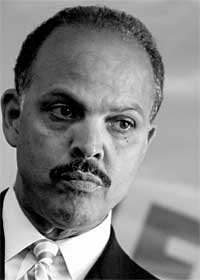
Many observers focused on Kilpatrick's presence and performance at a city funeral service for Rosa Parks on November 2 as a key event in turning around the mayor's deficit in the polls. Kilpatrick shared the stage with national luminaries like Bill Clinton and Jesse Jackson and delivered what was widely seen as a humble and powerful tribute to the deceased civil rights leader, saying, "Thank you for praying when we were too cool and too cute to pray for ourselves. Thank you for allowing us to step on your mighty shoulders." After months of negative advertising from the Hendrix campaign, Kilpatrick's campaign spent $230,000 in the final 5 days of the race to put a devastating advertisement on the airwaves showing Hendrix at a 1999 Detroit school board meeting directing police to evict protesters, including a grandmother named Uzzlier Bowens, who was shown being dragged from the room by police as Hendrix intoned, "I've got to have them put out. Now. Now. Now." In addition, during the final week of October, an advertisement appeared in the Michigan Chronicle, the city's largest black newspaper, seeming to liken criticism of Kilpatrick to lynching, although Kilpatrick's campaign disavowed any connection to the group running the ad.
As votes were still being cast on November 8, the US Attorney's office announced that the FBI would be investigating absentee ballot irregularities in the Detroit race, including allegations that some absentee ballots had listed abandoned lots as addresses and that other absentee ballots listed the names of dead people. Because of these and other irregularities, Hendrix announced on November 22 that he would seek an official recount of the votes, although the likelihood seemed slim that any recount would close the 14,000-vote gap between Hendrix and Kilpatrick.
Atlanta

Year Founded 1836
Area 132 square miles
Population 423,000 (2003 estimate)
Incumbent Shirley Franklin, first elected in 2001, handily won re-election to the mayoralty of Atlanta against a slate of relative unknowns, including David Walker, a food stand vendor. Franklin, who served as commissioner of cultural affairs under Maynard Jackson (1978-1982) and chief administrative officer under Andrew Young (1982-1990), and executive officer of operations during Jackson's second term (1991-1994), succeeded Mayor Bill Campbell, whose administration came under federal investigation on corruption and racketeering charges. Franklin is credited with improving the city's business climate and eliminating the city budget deficit.
Boston

Year Founded 1630
Area 49 square miles
Population 581,600 (2003 estimate)
Thomas Menino, shooting for a fourth term, ran against Maura Hennigan, a Boston City Council member since 1981 who was attempting to become the first female mayor in the city's history. Menino made national headlines during the 2004 Democratic Convention, held in Boston, when he got into a public fight with the city's main police union, which threatened to picket the convention. Although Boston voters were concerned with escalating crime rates, increases in cost of living, and poorly-performing public schools, they did not seem to blame Menino for the problems; in polls taken in late October, Menino's approval rating was at 72%, an enviable position for a big-city mayor. Hennigan tried to capitalize on Boston's problems to accuse Menino of not being engaged with problem-solving, but Menino's response was to scoff that Hennigan had been in city government far longer than he had been. In the end, Hennigan never made much headway against Menino, and drew fire for some clumsy attacks, including one in which she accused the mayor of not doing enough to prevent the death of an Emerson College student who was accidentally killed by police in October 2004 in a melee during the final game of the American League playoff series at Fenway Park.
Menino first took office in July 1993, and if he serves out his fourth term, he will have been the longest-serving mayor in Boston history.
Houston
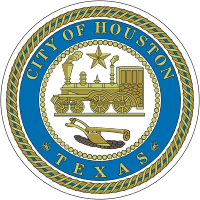
Year Founded 1823
Area 540 square miles
Population 2,009,700 (2003 estimate)
Bill White, a former deputy energy secretary in the Clinton Administration and the former CEO of an energy and real estate holding company, has been mayor of this city since January 2004 (when he spent almost $9 million of his fortune to defeat former City Councilman Orlando Sanchez). White, another enormously popular big-city incumbent, cruised to re-election against a slate of virtual unknowns (including Gladys House, a community activist; Jack Terrence; and Anthony Dutrow). White's accomplishments included advocating for efficiency in city government and pushing through key development projects, and he was widely praised for helping house 150,000 people who fled New Orleans after Hurricane Katrina in August 2005, although he came under some criticism for generally otherwise neglecting the poorer residents of the city.
Miami
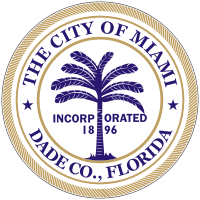
Year Founded 1836
Area 36 square miles
Population 376,800 (2003 estimate)
Manuel "Manny" Diaz, the popular Cuban-born incumbent mayor of this city since 2001, had no problems against a field of four relatively unknown candidates (including Enrique Santos, a radio shock jock; Omari Musa, a socialist; Evaristo "Ever" Marina, the editor of the Spanish-language newspaper El Nuevo Universal; and Charles Cutler, a community activist) in an election whose only major development was a postponement to November 15 due to extensive damage caused by Hurricane Wilma in October 2005.
Minneapolis
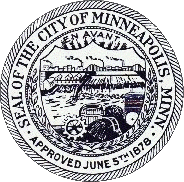
Year Founded 1839
Area 55 square miles
Population 373,200 (2003 estimate)
R.T. Rybak, the mayor of this city since 2002, easily defeated his challenger, Peter McLaughlin, a former city council member and a current member of the Hennepin County Board of Commissioners. The election turned mainly on issues of leadership, rising crime, and budget problems, with Rybak's mostly successful and highly visible incumbency overcoming reservations that McLaughlin tried to highlight about Rybak's perceived aloofness and diffidence.
San Diego

Year Founded 1769
Area 324 square miles
Population 1,226,800 (2003 estimate)
Donna Frye (D) was first elected to the San Diego city council in 2001, overseeing a district that includes the coastal neighborhoods of Clairemont, Linda Vista, and DeAnza Cove. She also co-owned a surf shop and described herself as a "surfer chick," but she is also a formidable debater and a policy wonk. In 2004, Frye ran in a bitter and acrimonious race against incumbent mayor Dick Murphy (R), who had been in office since 2000, and County Supervisor Ron Roberts (R). The election results were unresolved, and after several legal challenges, Frye's request to count write-in ballots was rejected by a judge in February 2005, resulting in a win of 2100 votes for Murphy.
However, after troubles mounted, including Murphy being named one of the worst big-city mayors in the U.S. by Time Magazine, along with federal investigations into the city's pension fund, the resignation of several prominent city officials, and the threat of city bankruptcy, Murphy announced his resignation in April 2005 and left office in July.
After narrowly losing the recount, Frye retooled her image, hired campaign consultants, and ran again in 2005, this time finishing strongly in a runoff and advancing to the general campaign with Jerry Sanders, the city's former police chief (1993-1999), as her opponent. Frye called for deep budget cuts and a sales-tax increase. Sanders called for more incremental reforms. Frye did not do much to counter Sanders' attacks until the final few weeks of the race. Ultimately, San Diego voters picked the safer candidate.
Pittsburgh

Year Founded 1750
Area 56 square miles
Population 325,300 (2003 estimate)
Tom Murphy, the incumbent mayor, chose not to run for re-election (he had been in office since 1994). Murphy presided over a severe budget crisis in the city (Pittsburgh was placed under a strict state budget restructuring after the city was declared financially distressed in 2003) and faced allegations that he traded a city labor contract for an endorsement in his 2001 re-election bid. The two candidates vying to replace Murphy were Democrat Bob O'Connor, a former city councilman and a vice-president of a restaurant management corporation who promised to run Pittsburgh like a business, and Republican Joe Weinroth, a relatively unknown local attorney. O'Connor won by a landslide in a city where the last Republican mayor was elected in 1926.
Cleveland
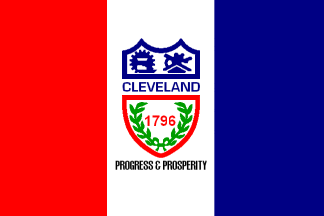
Year Founded 1796
Area 77 square miles
Population 461,300 (2003 estimate)
Jane Campbell, mayor of Cleveland since 2001, ran against Frank Jackson, a member of the city council who had represented the city's Fifth Ward for 16 years and had been president of the council for the past four years. Cleveland was the first major US city to elect a black mayor when Carl Stokes defeated Ralph Locher in 1967. The 2005 election marked the first time in Cleveland that a white incumbent had run against a black challenger since the 1975 runoff between incumbent Ralph Perk and Arnold Pinkney. 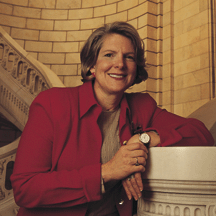 But unlike 1975, when the race of the challenger was a significant factor in Perk's victory, race did not appear to be a major factor in the 2005 election. (Jackson received about a third of the votes on the city's predominantly white West Side, whereas Campbell lost support in the predominantly black East Side, dropping from about 30% in 2001 to 24% in 2005.) The race turned mainly on Campbell's record, which Jackson heavily criticized, pointing out the city's sharply rising crime rate, stagnating business environment, and foundering public education system. But unlike 1975, when the race of the challenger was a significant factor in Perk's victory, race did not appear to be a major factor in the 2005 election. (Jackson received about a third of the votes on the city's predominantly white West Side, whereas Campbell lost support in the predominantly black East Side, dropping from about 30% in 2001 to 24% in 2005.) The race turned mainly on Campbell's record, which Jackson heavily criticized, pointing out the city's sharply rising crime rate, stagnating business environment, and foundering public education system.
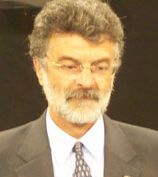
Jackson repeatedly termed Campbell a failure. Campbell countered by pointing out that most of the city's problems were ones she inherited when she took over from longtime Mayor Michael White. She added that she had successfully fought city corruption, developed parkland along Lake Erie, saved jobs at the Cleveland Airport System, and encouraged high-tech and other business investment. But ultimately, Campbell's unpopularity, along with her inability to get along with city and county leaders, contributed to her defeat.
Cincinnati
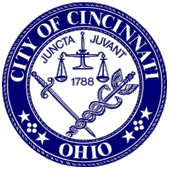
Year Founded 1788
Area 77 square miles
Population 317,400 (2003 estimate)
Cincinnati's incumbent mayor was Charlie Luken, a member of the US House of Representatives from 1991 to 1993 and mayor of Cincinnati from 1984 to 1990 (and elected mayor again in 1999 and 2001). Luken announced in August 2004 that he was not running for re-election. He was mayor during some of the worst civil unrest in Cincinnati history in April 2001, following the police shooting of an unarmed teenage African-American, Timothy Thomas. Luken ran for re-election in November 2001 against independent African-American candidate Courtis Fuller (who ironically quit the anchor position at WLWT-TV that Luken once held to run against Luken), winning by 55-45%. 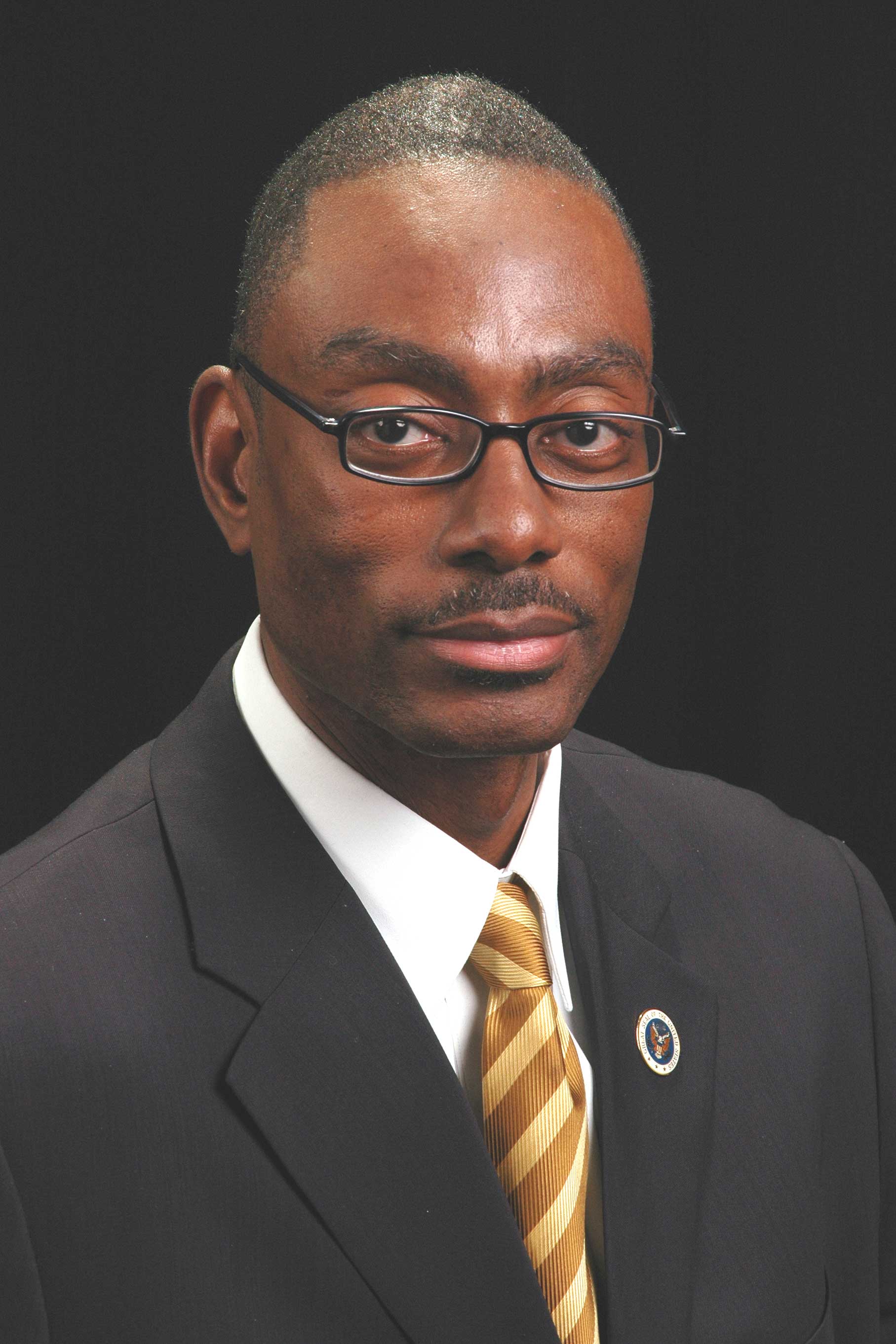 The two candidates facing off in the 2005 election were Mark Mallory, a term-limited member of the Ohio State Senate since 1998, who was vying to become the first elected black mayor in Cincinnati history, and David Pepper, a 34-year-old city council member (since 2001) who was endorsed by both of the city's major newspapers. Mallory ultimately won, carrying many of the wards that Pepper was expected to win handily. (The only black mayor in Cincinnati history prior to Mallory was Dwight Tillery, who lost his re-election bid in 1993 in a race against Roxanne Qualls.) The two candidates facing off in the 2005 election were Mark Mallory, a term-limited member of the Ohio State Senate since 1998, who was vying to become the first elected black mayor in Cincinnati history, and David Pepper, a 34-year-old city council member (since 2001) who was endorsed by both of the city's major newspapers. Mallory ultimately won, carrying many of the wards that Pepper was expected to win handily. (The only black mayor in Cincinnati history prior to Mallory was Dwight Tillery, who lost his re-election bid in 1993 in a race against Roxanne Qualls.)
Mallory (whose father, William Mallory, served in the Ohio House for 28 years, the last 20 of those as majority floor leader) painted himself as a consensus builder who would be able to move Cincinnati forward and end the "chaos at City Hall." Pepper ran on a 150-page platform called the "Pepper Plan" and railed against Cincinnati's "dysfunctional politics." Neither candidate was all that different from the other—both came from prominent Ohio families, both were Democrats, both boasted endorsements from heavy-hitting Cincinnati political figures. As a result, the campaign became a volley of personal attacks, with Pepper running a barrage of negative ads and Mallory for the most part taking the high road. The major issue in the campaign was public safety, with both campaigns taking as a theme the 4.5% increase in violent crime between 2001 and 2004.
St. Paul

Year Founded 1838
Area 53 square miles
Population 280,400 (2003 estimate)
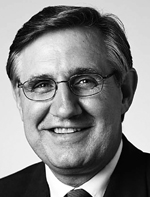
The incumbent, Randy Kelly, was challenged by former City Council member Chris Coleman, the son of a legendary populist politician, Nick Coleman, who served in the Minnesota Senate from 1963 to 1981. Kelly, who served as a state senator for 12 years and a state representative for 15 years, was first elected in 2001. In August 2004, Kelly, a career-long member of the Minnesota Democratic-Farmer-Labor Party, announced that he was endorsing Bush's re-election and toured the state to stump for the president, saying that he thought John Kerry, if elected, would jeopardize the nation's economic recovery and the chances of success in the Iraq war.
The backlash in St. Paul was immediate, spawning the formation of a recall movement that distributed signs labeling the mayor "Republican Randy,". When Coleman became Kelly's opponent in 2005, he made the most of Kelly's endorsement of Bush, which was an even more unpopular decision in 2005 than it had been in 2004. Coleman called Kelly made an astounding speech in September 2005 in which he essentially admitted that his endorsement of Bush had harmed his chances of re-election, concluding, "If the people of this city want the politics of anger to determine the outcome of this election ... it will be a very expensive catharsis. My message is, 'Don't vote angry.'" Although a poll conducted a week before the election showed that 55% of likely voters believed that the city was "heading in the right direction," Kelly became the first sitting mayor in St. Paul in over 30 years to be turned out of office.
Seattle
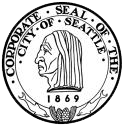
Year Founded 1852
Area 84 square miles
Population 569,100 (2003 estimate)
Greg Nickels, a member of the King County Council for 14 years, was elected to the mayor's office in 2001. Nickels governed with a back-to-basics style that appealed to many Seattleites after two years of civic misfortune (including the WTO protests in December 1999, riots in Pioneer Square in February 2001, and a 6.8 earthquake in March 2001), although his style was occasionally labeled heavy-handed. Nickels' only serious competitor was Al Runte, a former professor in environmental studies at the University of Washington who questioned many of Nickels' decisions, including the mayor's controversial support of a $4 billion tunnel to replace the quake-damaged Alaskan Way Viaduct, which was built in the 1950s and carries about a fourth of the daily north-south traffic through downtown Seattle. Ultimately, however, Runte garnered few endorsements and never posed any real challenge to Nickels' incumbency.


|